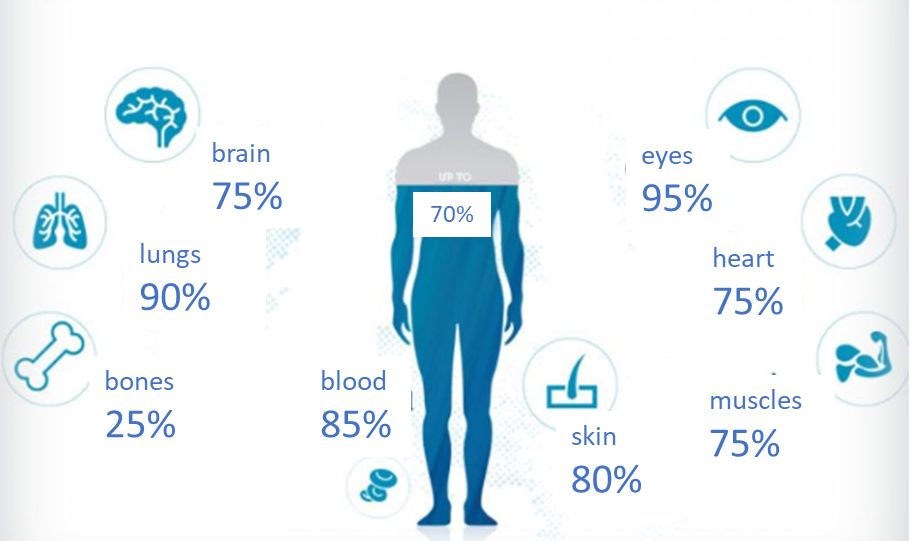
It can be hard to maintain a healthy lifestyle when studying. Late nights, work commitments, and a tight budget can all affect your health. These health tips are for students to avoid potential problems. These tips should not be considered a substitute for a healthy diet or exercise program. However, they can help students to maintain a healthy lifestyle while learning. These tips are important, so read on.
Exercise lowers the risk of getting sick
There are many ways in which exercise can improve your health and decrease your risk of illness. Exercise can help your body release neuroprotective hormones, which can protect your brain against disease. Exercise can also improve your immune system and heart function. These benefits can help ensure your health. So, don't miss the opportunity to exercise! Here are some benefits of exercising.
Healthy diet improves memory
Fish, seafood, nuts, whole grains, and fatty fish can all help improve memory. They all contain folic acid, a crucial nutrient that is important for brain health. Eggs are rich in vitamin B12, lecithin and choline. Choline is a crucial building block for neurons. Fish has high levels of omega-3 fat acids, an essential nutrient that is vital for brain cells as well as oxygen transport. Consuming seafood can even help prevent Alzheimer's disease.

Meditation reduces stress
One study found that students who meditate more frequently experience lower levels stress. Participants in the study were music majors and were asked to take part in guided meditations of 10 minutes each day. The researchers asked Temple College students to join them for mediation every day. The study revealed that meditation helped students reduce stress during November, which was a busy month for students. Shamatha meditation students were particularly affected by this.
Drinking alcohol can lead to health problems
It can take months or even years for college students to see the effects of alcohol consumption on their health. However, research has shown that more college students have alcohol-related issues than just 150,000 per year. These include minor cuts, broken bones and concussions. You are also more likely to become addicted to alcohol if you drink alcohol for longer periods of time. College years can lead to alcoholism.
Avoiding head lice
Head lice prevention is easiest if you don't allow your child to share personal items. This includes hats and caps as well as hair accessories. Personal items such as pillows, headphones, car seats, and pillows that can come into direct contact with students' heads should be avoided. Parents should also check their child's hair, as lice can live on these items. They should examine their child's scalp for live lice and nits.

FAQ
How does mental well-being affect daily life?
Mental illness affects everyone at some point in his life. The difference between individuals with mental illness or others is the fact they don’t seek treatment. Talk to someone if you feel something is not right. There are many options for dealing with anxiety, depression, stress, such as medication, therapy, exercise, diet and meditation.
What does a psychologist say about mental health?
Psychologists believe that mental wellbeing is essential for human development. They believe mental health does not simply refer to having no mental illness but also being mentally fit.
Mental health can be viewed from different perspectives by psychologists. Some psychologists believe mental health is unnecessary because so many people don't have any mental illnesses. Other psychologists think that mental health is essential because without it, we can't function properly.
What are the 5 ways to improve wellbeing?
A person's well-being can be defined as their "state of mental, physical, spiritual, or social well-being". There are many factors that affect our well being, including work, family, health, relationships and finances. The first step to improving your well-being is identifying what aspects of your life need improvement. Then, work on changing these things.
Here are five tips to boost your well-being.
-
Exercise - It boosts endorphins, which can make us happier.
-
Sleep - Sleeping more than 6 hours per night decreases stress and anxiety.
-
Nutrition – Healthy foods such as fruits & vegetables can boost your mood.
-
Meditation - Regular meditation can reduce stress and anxiety.
-
Socialization: Spending quality time together with our families and friends makes us happy.
What can I do if I have mental health problems?
It's imperative to seek help when you're struggling with any mental health issue. Perhaps you've been through trauma or suffered abuse in the past. It's possible that this has affected how you think about yourself.
You might also have an eating disorder, addiction or other type of mental illness. These disorders can cause significant damage to your personal and professional life.
They shouldn't be dealt with on their own. Talk to someone who has experience with these issues. Professional therapists can help you overcome these obstacles.
Statistics
- According to the National Alliance of Mental Illness (NAMI), one in five Americans experiences mental health issues which translates to more than 40 million adults a year. (doctorondemand.com)
- In any given year, an estimated 18.1% (43.6 million) of U.S. adults ages 18 years or older suffered from any mental illness, and 4.2% (9.8 million) (healthypeople.gov)
- Similarly, for positive mental health, there is likely to be substantial agreement about some typical components (e.g., resilience to stress) 6, and controversy about more atypical components (e.g., career consolidation). (ncbi.nlm.nih.gov)
- It does have some influence, but not nearly as much as we might think, so focusing less on attaining wealth will likely make you happier (Aknin, Norton, & Dunn, 2009); (positivepsychology.com)
- Neuropsychiatric diseases are the leading cause of death and disability in the U.S., accounting for 18.7 percent of all years of potential lifespan loss and premature mortality.
External Links
How To
How To Improve Your Memory
Memory is one of those things that everyone wants to be able to remember better. Unfortunately, memory decline is something we all experience at some point. In fact, more than half of Americans over 65 suffer from some form of dementia.
No matter if you are dealing with Alzheimer's disease, dementia or any other form of cognitive decline, there are many options to improve your memory. These are three easy steps you can do today to improve your memory.
-
Consume More Fruits & Vegetables. Vegetables and fruits are rich in antioxidants, vitamins and minerals as well as fiber and phytochemicals which can boost brain function. They also provide essential nutrients that protect against neurological diseases.
-
Get enough sleep. Sleep deprivation has been linked to poor concentration and memory loss. Make sure you get seven to eight hours of restful sleep each night.
-
Take a Walk. Walking stimulates blood flow to the brain, which improves memory. Walking can help you lose weight, which will make you appear slimmer and healthier.